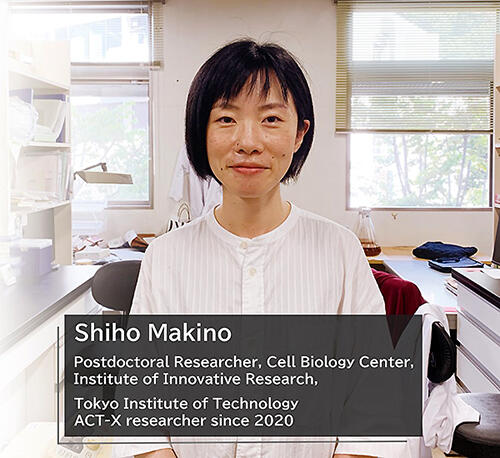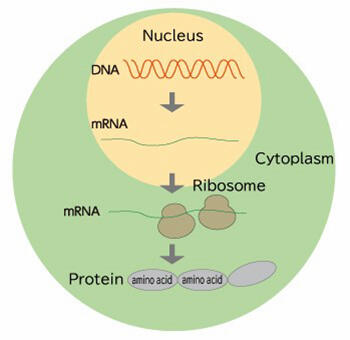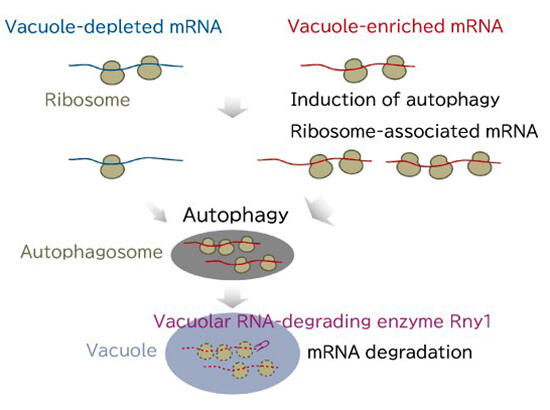
Proteins involved in various biological phenomena are synthesized based on the genetic information. Shiho Makino, a postdoctoral researcher at the Cell Biology Center, Institute of Innovative Research, Tokyo Institute of Technology, focuses on messenger RNA (mRNA) involved in protein synthesis and has taken on the challenge of clarifying the mechanisms underlying autophagy. Currently, Dr. Makino is working on the "clarification of the mechanism of selectivity of mRNA degradation by autophagy" in the "Life and Chemistry" research area of ACT-X, a strategic basic research program implemented by JST.
Dr. Makino studied the mechanism underlying mRNA degradation at Tohoku University Graduate School. While thinking about her career path after completing her PhD, she came across a surprising report from Professor Yoshinori Ohsumi of the Tokyo Institute of Technology. "It made a great impact on me that autophagy, which was known to be a mechanism of protein degradation, also degrades RNA, which carries genetic information." Dr. Makino immediately contacted Dr. Ohsumi and joined the laboratory.
Genetic information refers to the sequences of nucleotide bases in an organism's DNA, some of which are transcribed into mRNA and translated into the sequences of amino acids that make up proteins (Fig. 1). Proteins are decomposed into amino acids via autophagy, which is one of the mechanisms of protein degradation. Since it was known that autophagy exhibits preference in protein degradation, Dr. Makino hypothesized that it should exhibit some selectivity for mRNA degradation as well. Saccharomyces cerevisiae (yeast) deficient in the enzyme Rny1, which degrades RNA in the vacuole, was constructed, and the mRNA accumulated in the vacuole without being degraded via autophagy was examined. Results revealed that mRNAs encoding proteins involved in amino acid biosynthesis, were most likely to be delivered to vacuoles. "From this result, we believe that autophagy may regulate the number of amino acids by degrading mRNA," Dr. Makino said.
In addition, it was clarified that mRNAs undergoing translation are delivered to the vacuole, which is suggested to be a translation-dependent process. It was also found that the end of the mRNA that are not translated into proteins, influenced the susceptibility to degradation (Fig. 2). Our findings suggest that autophagy regulates mRNA degradation at the translation step, thereby enabling a rapid and sensitive switch from ribosome-associated mRNAs to expression of mRNAs that are essential for an effective response to stress.
Her research has only just begun - "Do what only you can do"
In addition to mRNA, research is now expanding to transfer RNA (tRNA), which carries amino acids to the ribosome during protein synthesis. "Autophagy is also involved in tRNA degradation, which we are currently studying with great interest." she said. tRNA is more abundant than mRNA, accounting for approximately 15% of the cellular RNA. In addition to translation, tRNAs are involved in various physiological functions and diseases, and if our research progresses, this knowledge is expected to be applied to therapeutic agents for various related diseases.
Dr. Makino recalls that previous studies were not easy. However, even when her research was not progressing well, Dr. Ohsumi continued to encourage, "I'm sure you'll find something interesting," which was a great support. "Research on the mechanism by which the selectivity of RNA degradation by autophagy has only just begun. As an RNA researcher, I would like to do research that only I can do," she says with a smile.






